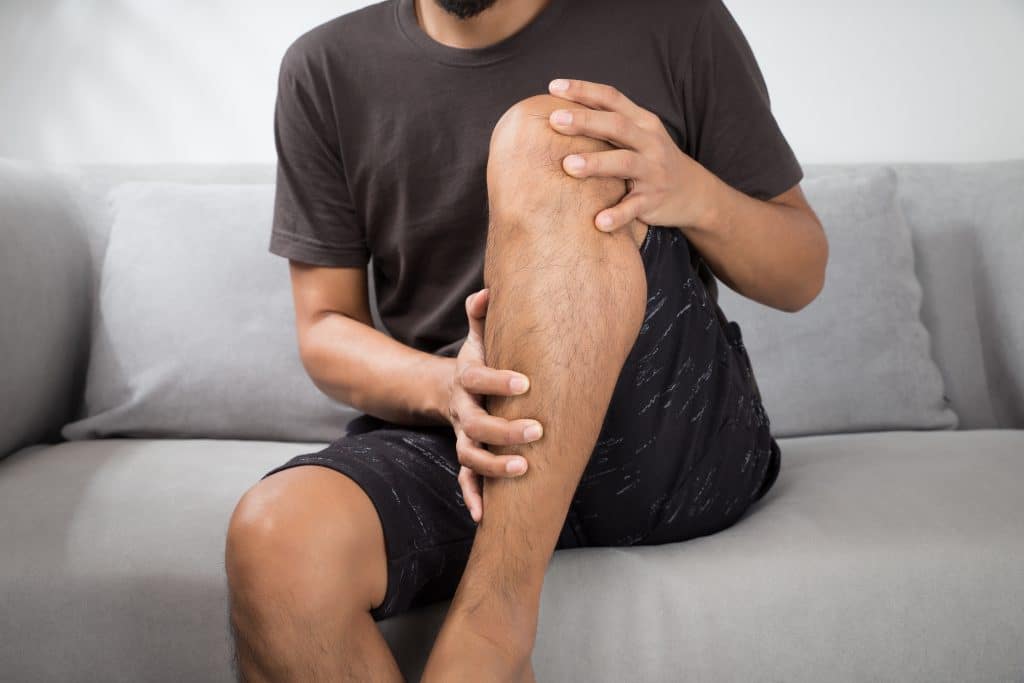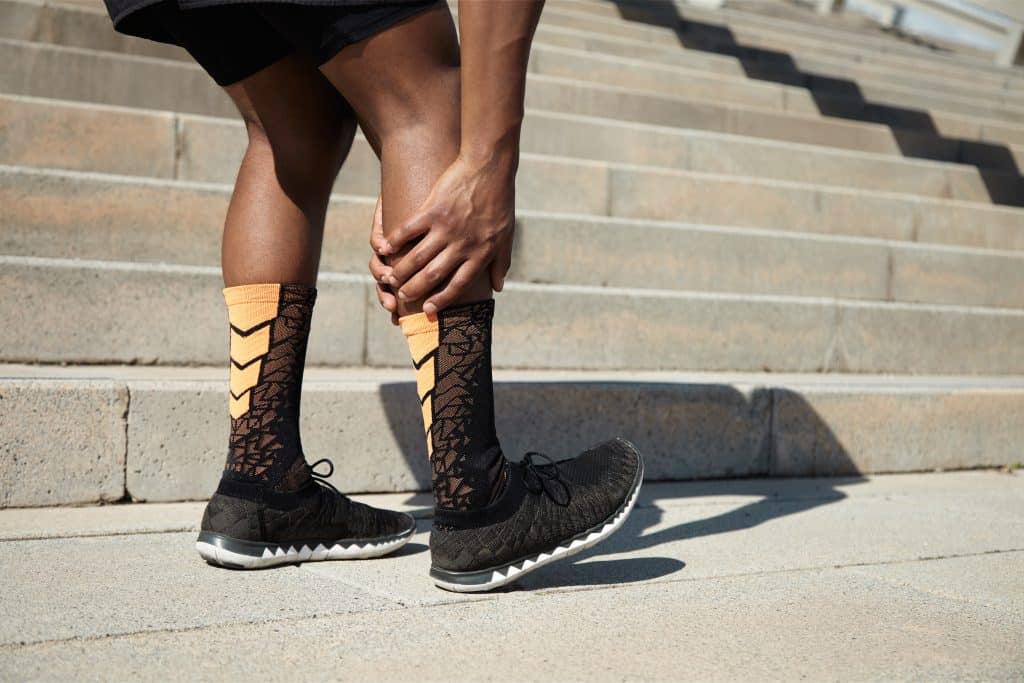Ever been jolted awake by a sudden cramp or experienced one mid-workout? These muscle cramps are more than just inconvenient and painful; they act as alarms your body is sounding. Yet, the reasons behind these cramps are not always as straightforward as you might think. Muscle cramps aren’t merely a discomfort to grit your teeth through; they may offer valuable insight into what your body needs or lacks. This post aims to explore the cryptic messages your muscle cramps might be sending you, covering their types, causes, treatments, and much more.
Contents
What Are Muscle Cramps?

Muscle cramps are sudden, involuntary muscle contractions that can happen almost anywhere in your body. When they occur, they can range from a mild twitch to an agonizing pain. These contractions often arrive unannounced, and they can last from a few seconds to several minutes. Understanding the physiology of a cramp can provide the initial clue into why it happens. The muscles in your body rely on a balanced interaction between various chemicals, such as sodium, potassium, calcium, and magnesium. When this balance is disrupted, a cramp can be the result.
In the universe of cramps, there are different categories: Exercise-Induced Cramps, Nocturnal Cramps, and many others. Knowing which type of cramp you’re experiencing can guide you toward the right course of action, whether it’s changing your diet, altering your workout routine, or seeking medical advice.
Common Causes Of Muscle Cramps

Dehydration is one of the leading causes of muscle cramps. When you’re low on fluids, your muscles are more susceptible to contractions. Your body needs adequate hydration to keep muscles functioning properly, so make it a point to drink enough water, especially before engaging in physical activity. Another major culprit is an electrolyte imbalance. Electrolytes like sodium, potassium, and magnesium play an essential role in muscle function. A shortage or excess of these can trigger cramps.
However, the causes don’t stop there. Overexertion from prolonged exercise or physical labor can also induce cramps. Your muscles get fatigued, leading to spasms that manifest as cramps. Additionally, some medications list muscle cramps as a side effect. If you’ve recently started a new medication and notice an increase in cramps, consult your healthcare provider for an alternative or a solution.
Why Do Cramps Occur At Specific Times?

Exercise-induced cramps often happen either during a workout or shortly afterward. These cramps can be a sign that you’re pushing your body too hard or that you haven’t adequately prepared for the physical strain. On the flip side, nocturnal cramps most commonly strike during the night. The stillness and positioning during sleep can contribute to muscle tension, leading to cramps.
Another timing aspect to consider is stress-related cramps. Yes, your emotional and mental state can influence the physical condition of your muscles. When you’re stressed or anxious, your body releases hormones like cortisol, leading to muscle tension and, subsequently, cramps. So, the timing of your cramps can also serve as an indicator of your overall well-being beyond just physical factors.
The Role Of Diet In Muscle Cramps

If you find yourself regularly plagued by muscle cramps, it might be time to assess your diet. Nutrients play a pivotal role in muscle health and function. Foods rich in potassium, magnesium, and calcium can alleviate muscle tension, reducing the frequency of cramps. Bananas, yogurt, and almonds are great options to consider including in your diet for this reason.
But it’s not just about what you should eat; it’s also about what you should avoid. Foods and drinks high in sugar and caffeine can exacerbate dehydration, making cramps more likely. Also, excessive salt intake can lead to an imbalance in electrolytes, thereby contributing to cramps. Tailoring your diet to enhance muscle health can act as a proactive step in preventing cramps, allowing you to understand and respond to what your muscles are trying to tell you.
Treatment Options For Muscle Cramps

So, you’ve got a cramp—what next? Home remedies are often the first line of defense. Stretching the affected muscle, massaging the area, and applying warm or cold compresses can offer immediate relief. These methods work by relaxing the contracted muscle, improving blood flow, and easing tension. Over-the-counter solutions like pain relievers or muscle relaxants are also available for those who need quick relief. However, these medications should be used cautiously and are generally not recommended for long-term treatment of recurring muscle cramps.
If your cramps persist or intensify, it may be time to consult a healthcare professional. Chronic or severe cramps can sometimes signal underlying health issues that require medical intervention. A doctor may conduct tests to determine if your cramps are symptomatic of a more significant concern like nerve compression, mineral deficiency, or even certain medications you may be taking.
Prevention Techniques

Taking steps to prevent muscle cramps can save you from future discomfort and potential health issues. Preparation and awareness are key. Incorporating warm-up exercises before any strenuous activities can prepare your muscles for the work ahead. Additionally, staying hydrated before, during, and after workouts can help in maintaining the balance of electrolytes in your system, thereby reducing the likelihood of cramps.
Balance is the operative word here, not just in terms of body chemistry but also in diet. Consuming a balanced diet rich in vitamins and minerals can go a long way in preventing cramps. Foods like bananas, nuts, and leafy green vegetables provide essential nutrients that support muscle health and ward off cramps.
Psychological Aspects Of Muscle Cramps

It might sound surprising, but your mental state can have a direct impact on your physical well-being, including the likelihood of experiencing muscle cramps. When you are stressed or anxious, your body is more prone to muscle tension, which can escalate into cramps. Simple relaxation techniques such as deep breathing or progressive muscle relaxation can offer some relief in such situations.
Mindfulness techniques can also be a useful tool in managing stress-related muscle cramps. Activities like mindfulness meditation focus on breath control and body awareness, helping you to better understand the signals your muscles are sending. This, in turn, can lead to better management and possibly even prevention of cramps in the long run.
What You Should Not Ignore

While many muscle cramps are harmless, some are warning signs of a more severe issue. Prolonged pain, accompanying symptoms like swelling, redness, or cramps that occur without an apparent cause, should not be ignored. These could be indicators of a more serious underlying condition that needs medical attention.
It’s crucial to consult a healthcare professional if you experience persistent or unusually severe cramps. The reason could range from a mineral deficiency to medication side effects or even more serious issues like nerve disorders. Being proactive about these symptoms could be a life-saving decision.
Unraveling The Messages Behind Muscle Cramps
Muscle cramps might seem like a minor annoyance, but as you’ve learned, they can tell you a lot about your overall health. Understanding their types, causes, and what your body may be signaling through them can guide you toward a healthier lifestyle. Don’t merely treat cramps as fleeting discomfort; instead, use them as a cue to tune into what your body needs. Take proactive steps for prevention, but don’t hesitate to seek professional advice when things seem off the mark.


